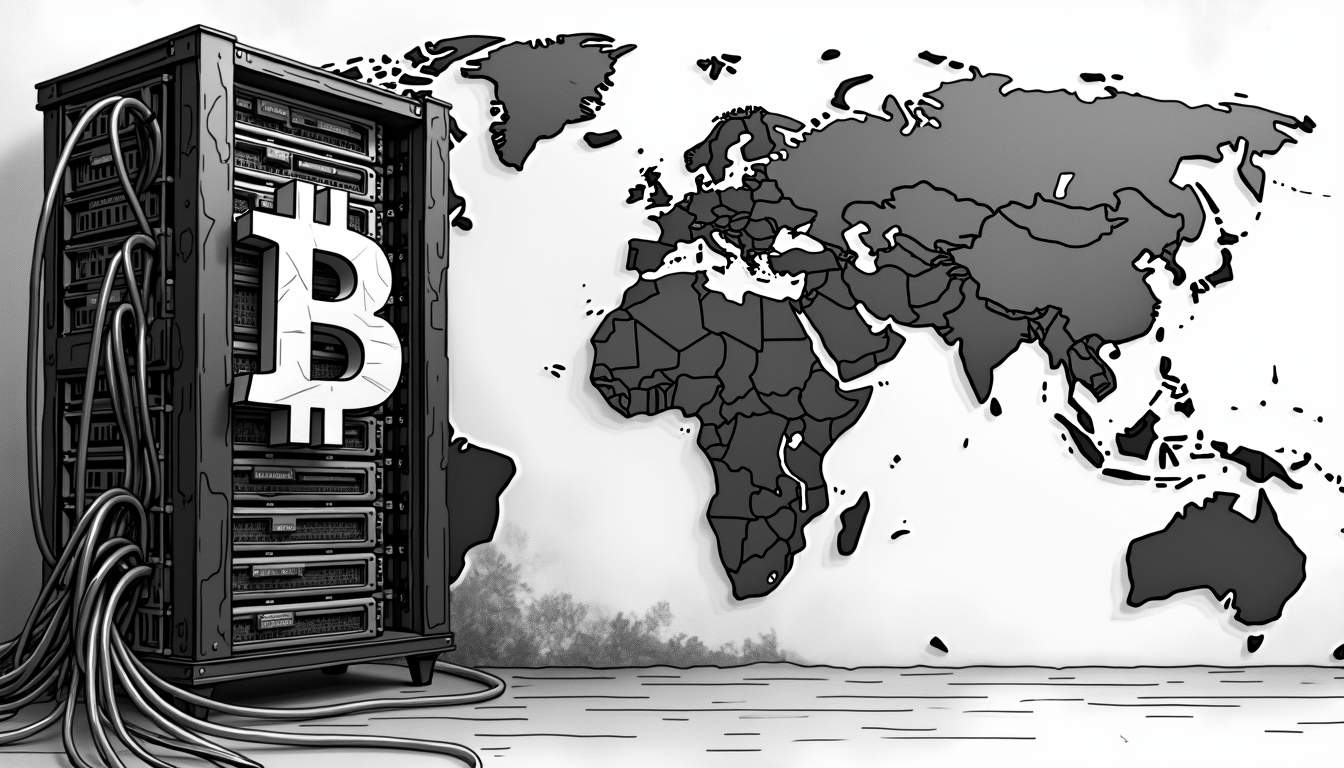Bitcoin isn’t just a digital currency; it’s becoming a chess piece in the game of global dominance. Recently, MARA Holdings, a major player in the mining scene, made waves by urging the US to step up its game in Bitcoin mining. They framed it as a matter of national security. As I read through their statements, I couldn’t help but think about the implications this could have on our economy and even on global relations.
The Case for Bitcoin as a Strategic Asset
At first glance, holding Bitcoin seems like an odd strategy. But when you consider that the US dollar is propped up by various assets—including gold—it starts to make sense. MARA pointed out that China is not far behind in its Bitcoin holdings, and suddenly it feels like we’re in an arms race of sorts. The idea is simple: if adversarial nations gain control over significant amounts of Bitcoin, they could potentially disrupt US transactions or leverage it for geopolitical maneuvering.
However, there’s another layer to this: economic warfare. Imagine if countries started using Bitcoin to bypass traditional financial systems and sanctions. If the US isn’t ahead of the curve, we might find ourselves at a serious disadvantage.
The Flip Side: Environmental Concerns and Geopolitical Tensions
But it’s not all sunshine and rainbows. One major concern is how this will be perceived globally. If people think the US is trying to corner Bitcoin for nefarious purposes, it could lead to increased tensions and even push other nations closer together.
Then there’s the environmental angle. Bitcoin mining uses an insane amount of energy—something like 0.5% of total global energy consumption! And while MARA claims they’re using renewable sources, not everyone will buy that narrative. There’s a real risk that this could undermine efforts to combat climate change.
Privacy Coins Under Scrutiny
As someone who dabbles in crypto betting exchanges and values my privacy, I can’t help but feel uneasy about these developments. The US government has been cracking down hard on privacy coins—those cryptocurrencies designed specifically for anonymity—and it’s only going to get worse.
Regulators are worried these coins facilitate illegal activities like money laundering and ransomware attacks. And they’re right! But so are mainstream currencies; just look at cash transactions!
The irony? As they push us towards more transparent forms of currency, they’re also making it easier for those who want to remain hidden to find alternative solutions.
Emerging Markets: Caught in the Crossfire?
So what does all this mean for emerging markets? As the US strengthens its grip on crypto resources, will these nations be left out in the cold? Or could there be an opportunity for decentralized platforms that bypass traditional power structures altogether?
It’s complicated. On one hand, increased legitimacy of cryptocurrencies might open doors; on the other hand, it could also lead to harsher crackdowns from authorities wary of losing control.
Summary
As I digest all this information, I’m left with more questions than answers:
Is securing dominance in something as volatile as Bitcoin really smart?
Are we just setting ourselves up for more conflict?
And what happens when other nations decide they need their own “gold”?








